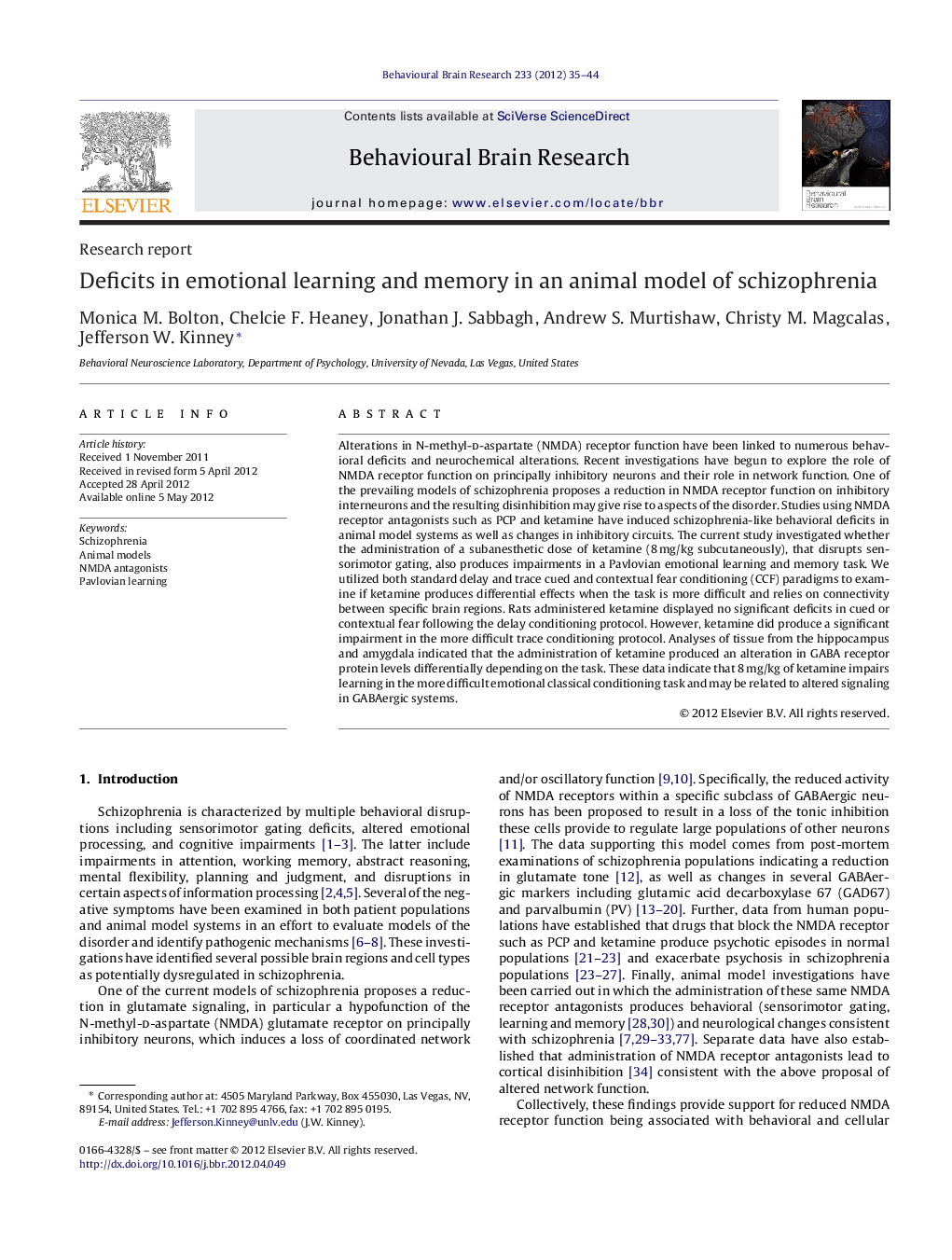| کد مقاله | کد نشریه | سال انتشار | مقاله انگلیسی | نسخه تمام متن |
|---|---|---|---|---|
| 4313178 | 1289987 | 2012 | 10 صفحه PDF | دانلود رایگان |

Alterations in N-methyl-d-aspartate (NMDA) receptor function have been linked to numerous behavioral deficits and neurochemical alterations. Recent investigations have begun to explore the role of NMDA receptor function on principally inhibitory neurons and their role in network function. One of the prevailing models of schizophrenia proposes a reduction in NMDA receptor function on inhibitory interneurons and the resulting disinhibition may give rise to aspects of the disorder. Studies using NMDA receptor antagonists such as PCP and ketamine have induced schizophrenia-like behavioral deficits in animal model systems as well as changes in inhibitory circuits. The current study investigated whether the administration of a subanesthetic dose of ketamine (8 mg/kg subcutaneously), that disrupts sensorimotor gating, also produces impairments in a Pavlovian emotional learning and memory task. We utilized both standard delay and trace cued and contextual fear conditioning (CCF) paradigms to examine if ketamine produces differential effects when the task is more difficult and relies on connectivity between specific brain regions. Rats administered ketamine displayed no significant deficits in cued or contextual fear following the delay conditioning protocol. However, ketamine did produce a significant impairment in the more difficult trace conditioning protocol. Analyses of tissue from the hippocampus and amygdala indicated that the administration of ketamine produced an alteration in GABA receptor protein levels differentially depending on the task. These data indicate that 8 mg/kg of ketamine impairs learning in the more difficult emotional classical conditioning task and may be related to altered signaling in GABAergic systems.
► Subanesthetic administration of ketamine produced deficits in trace cued fear.
► Ketamine produced no significant deficits in delay cued fear or contextual fear.
► Ketamine also impaired sensorimotor gating consistent with models of schizophrenia.
► Data indicate subanesthetic ketamine produces a disruption of specific circuits.
Journal: Behavioural Brain Research - Volume 233, Issue 1, 15 July 2012, Pages 35–44